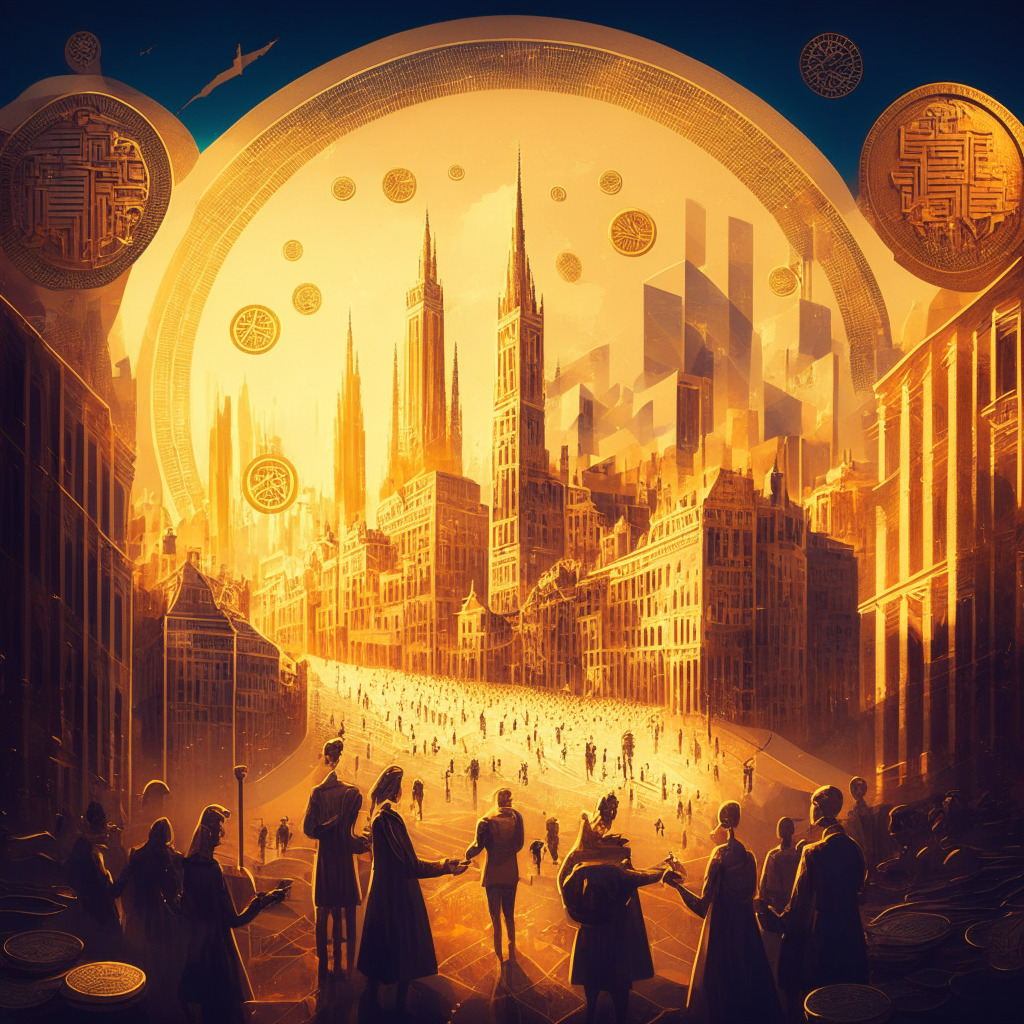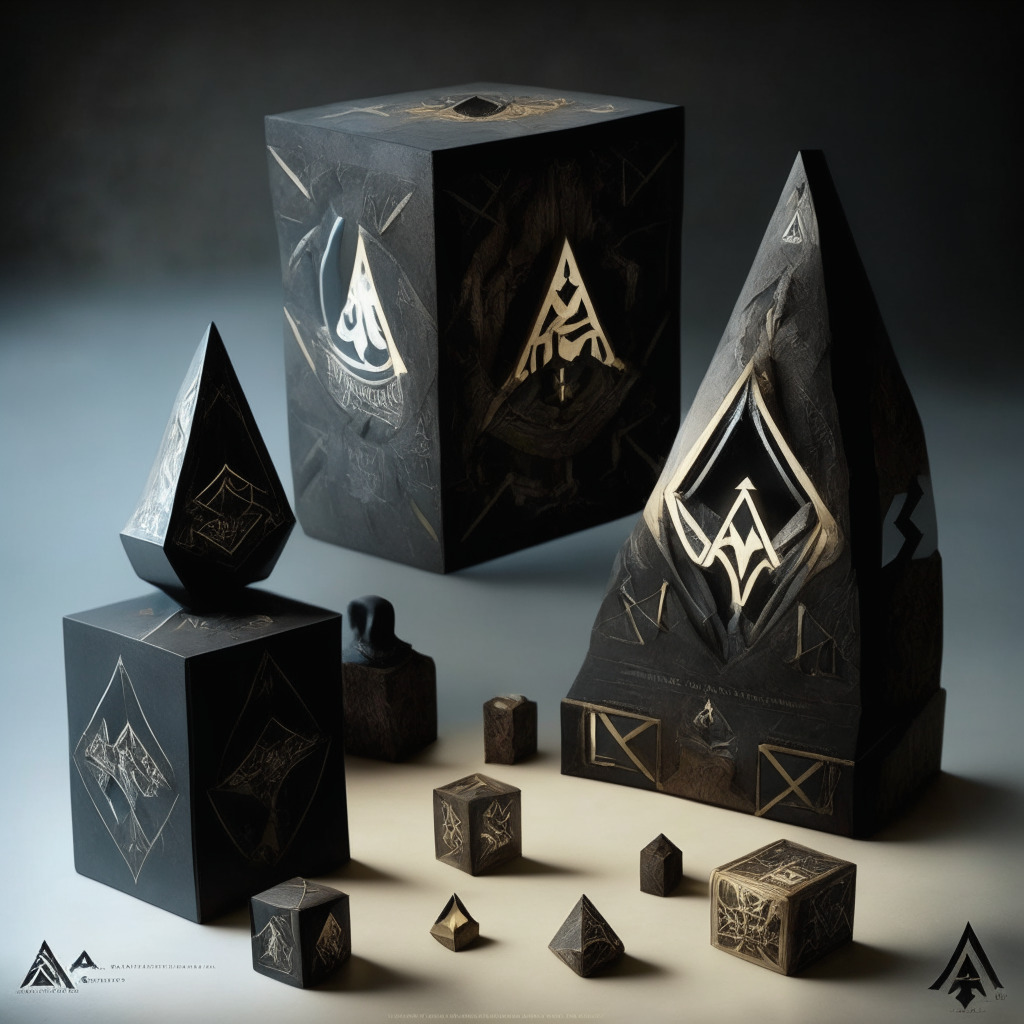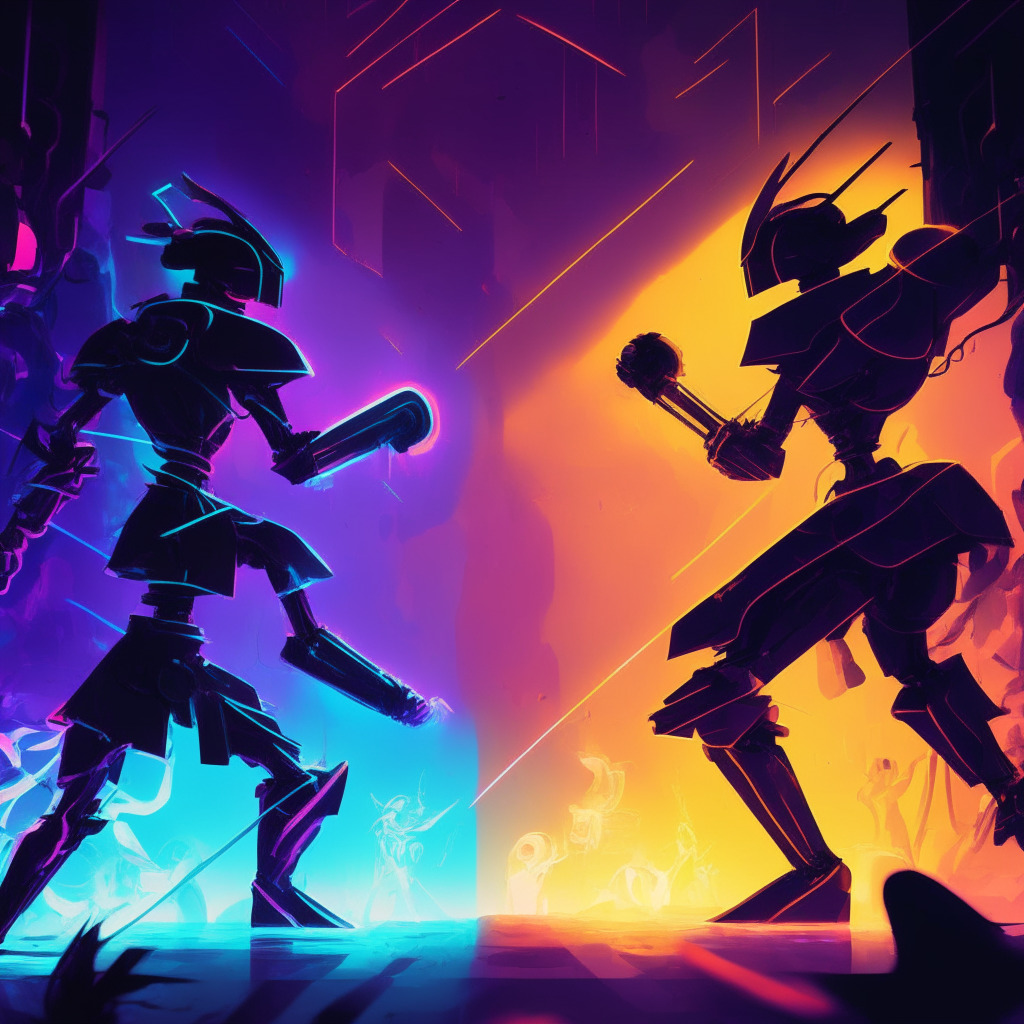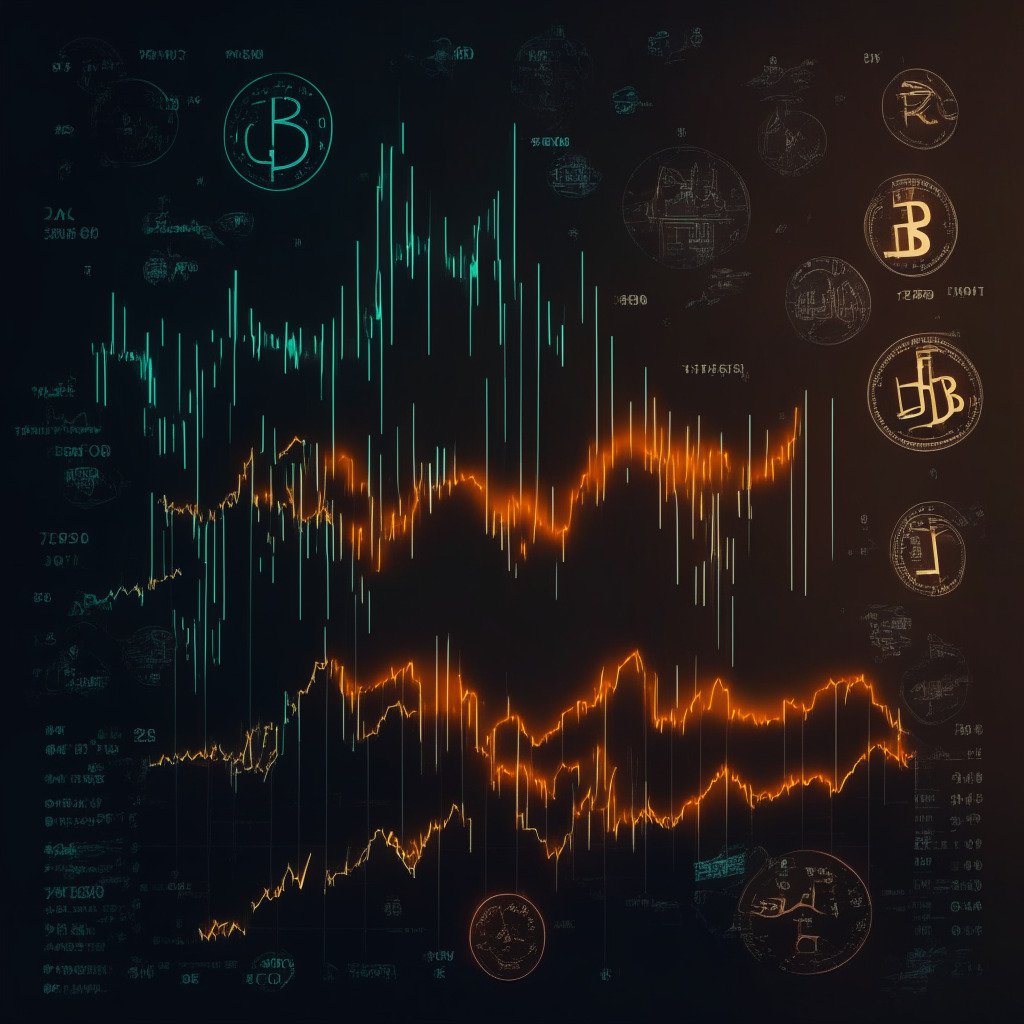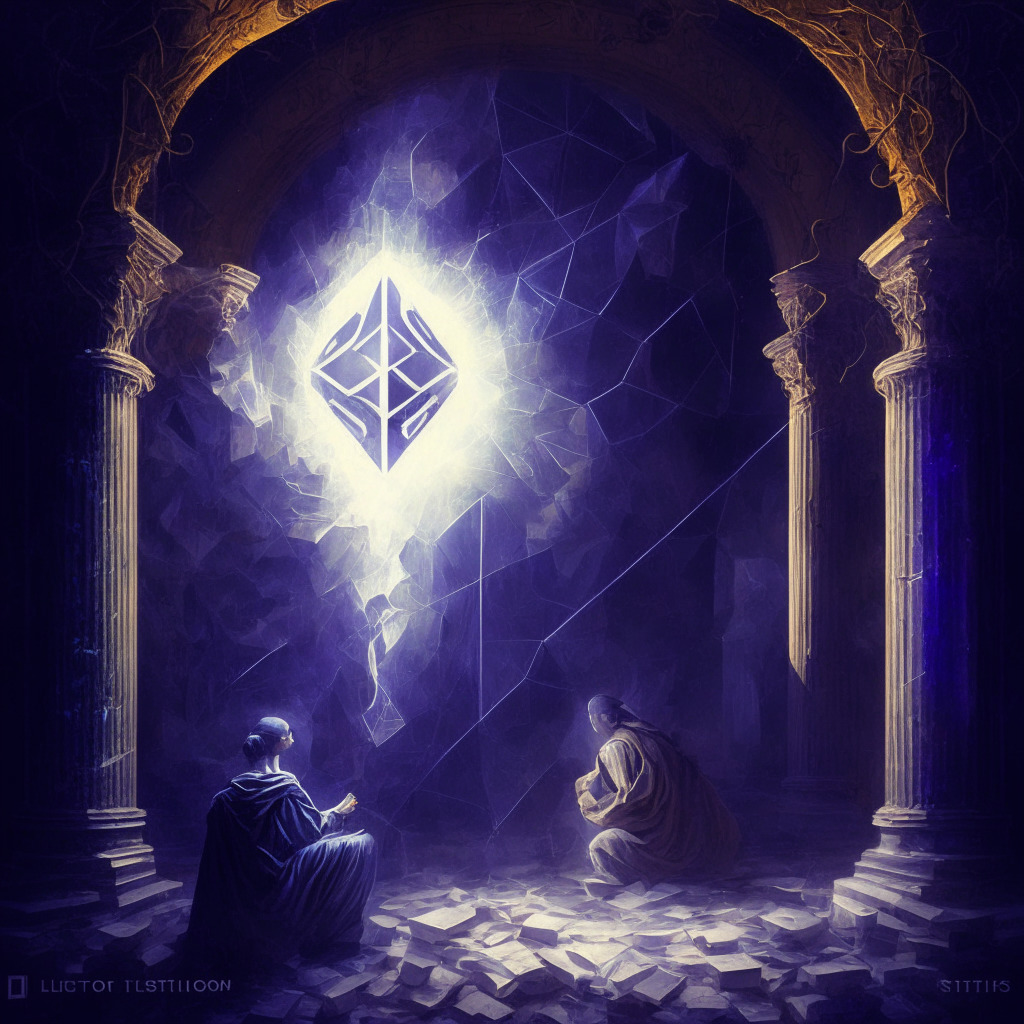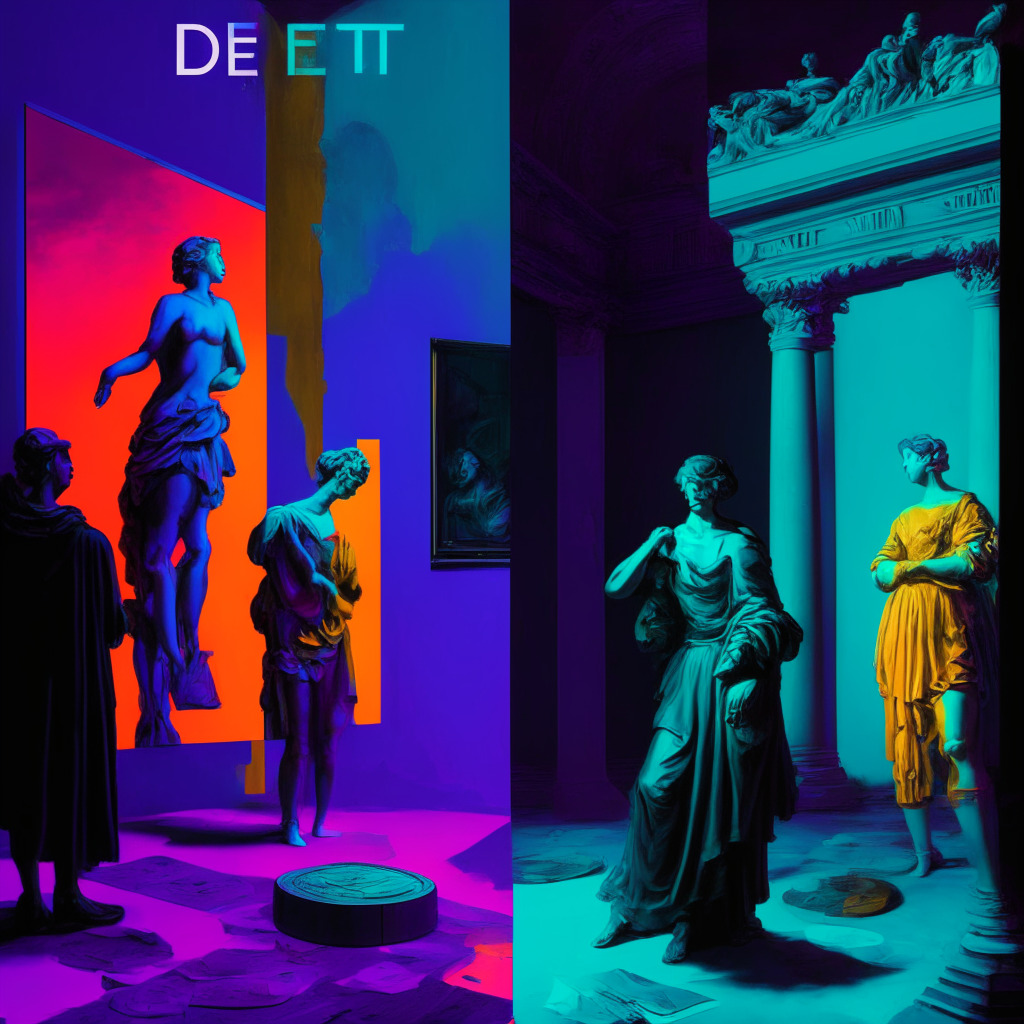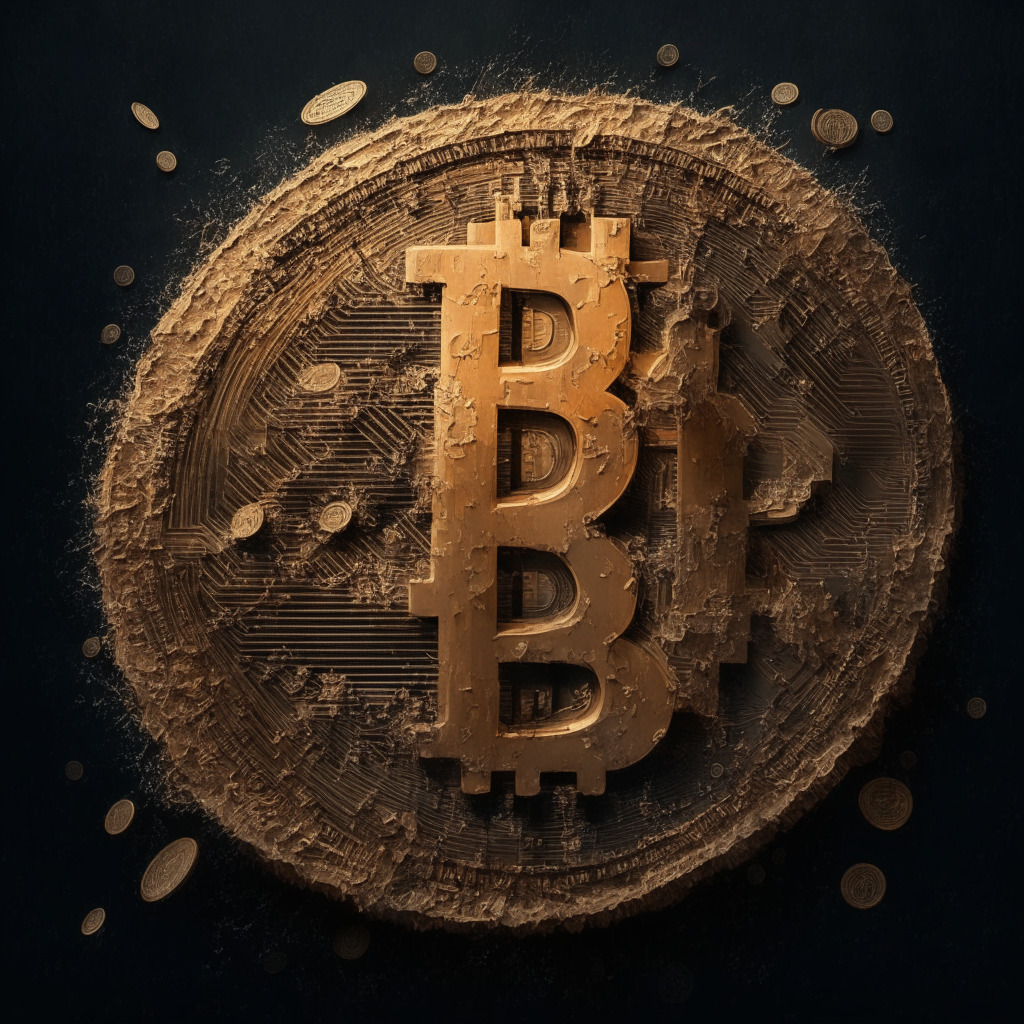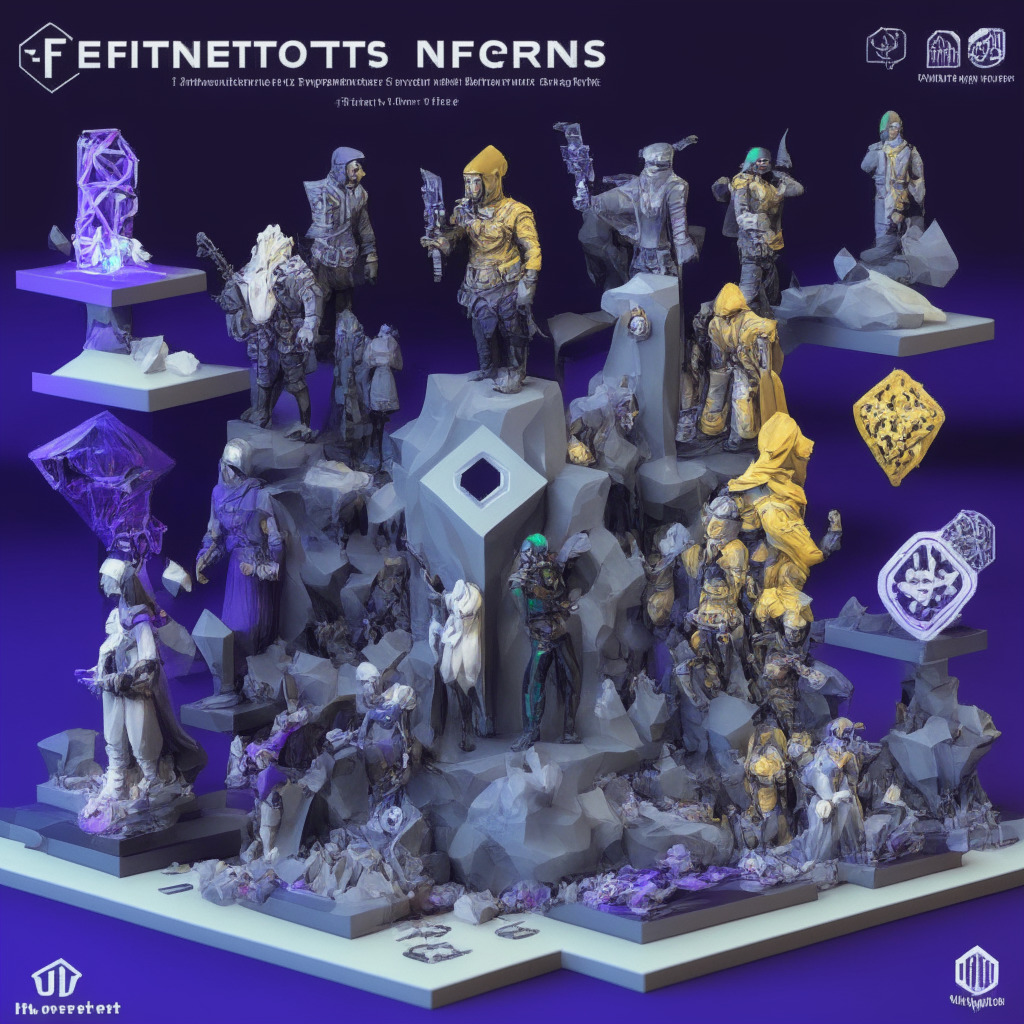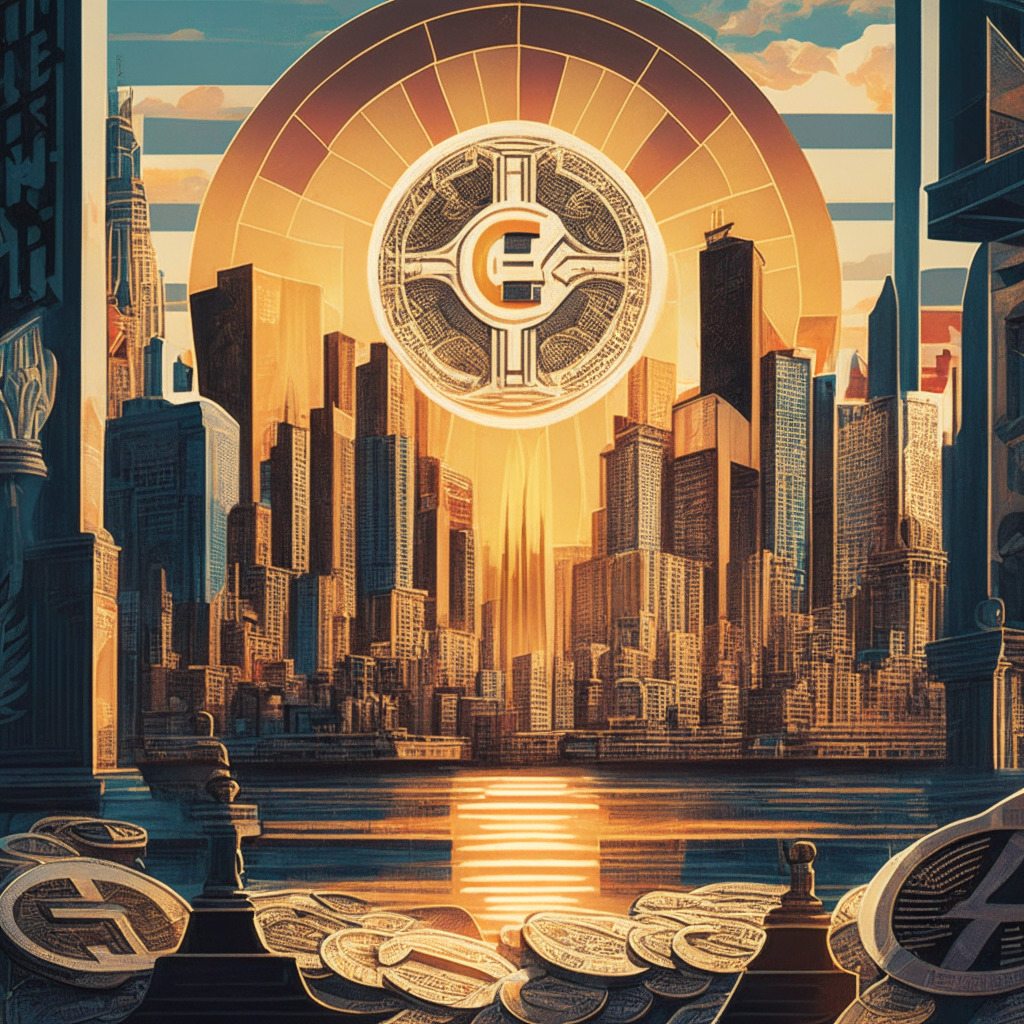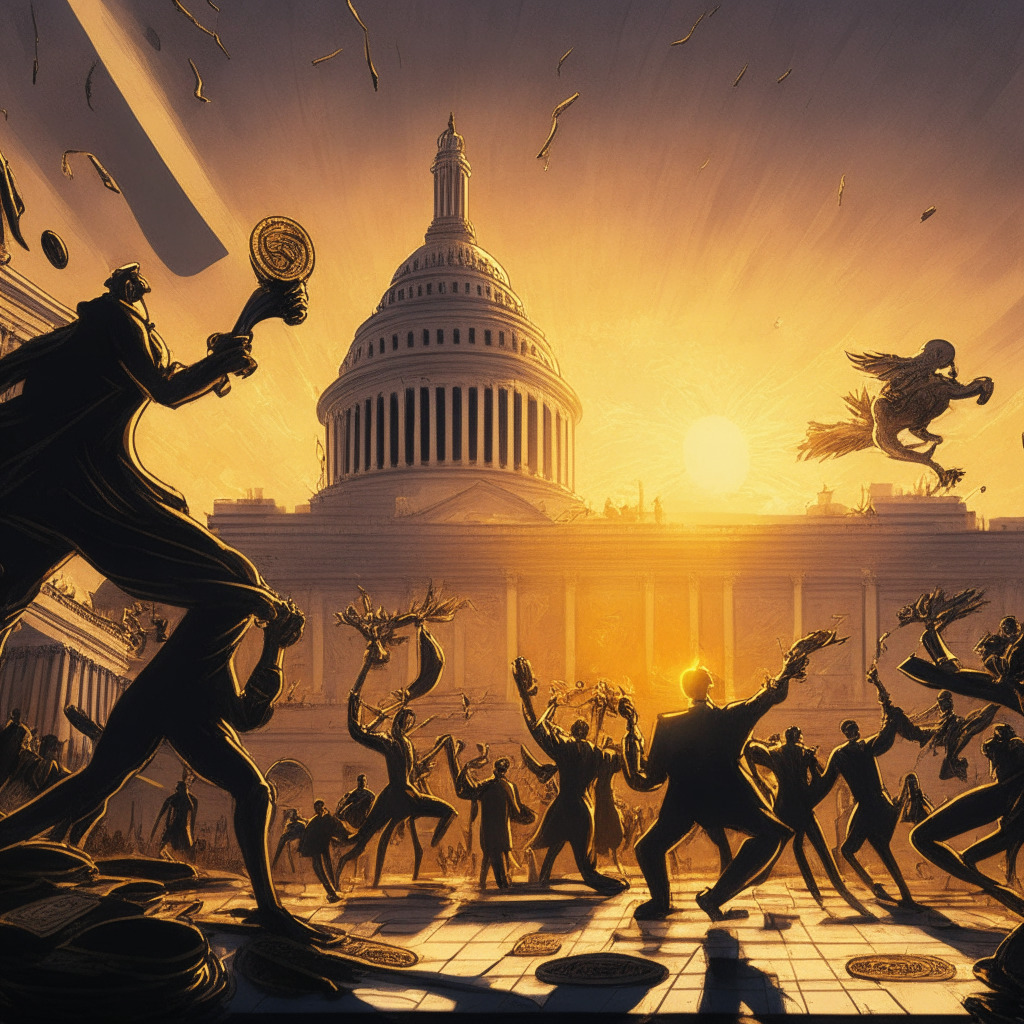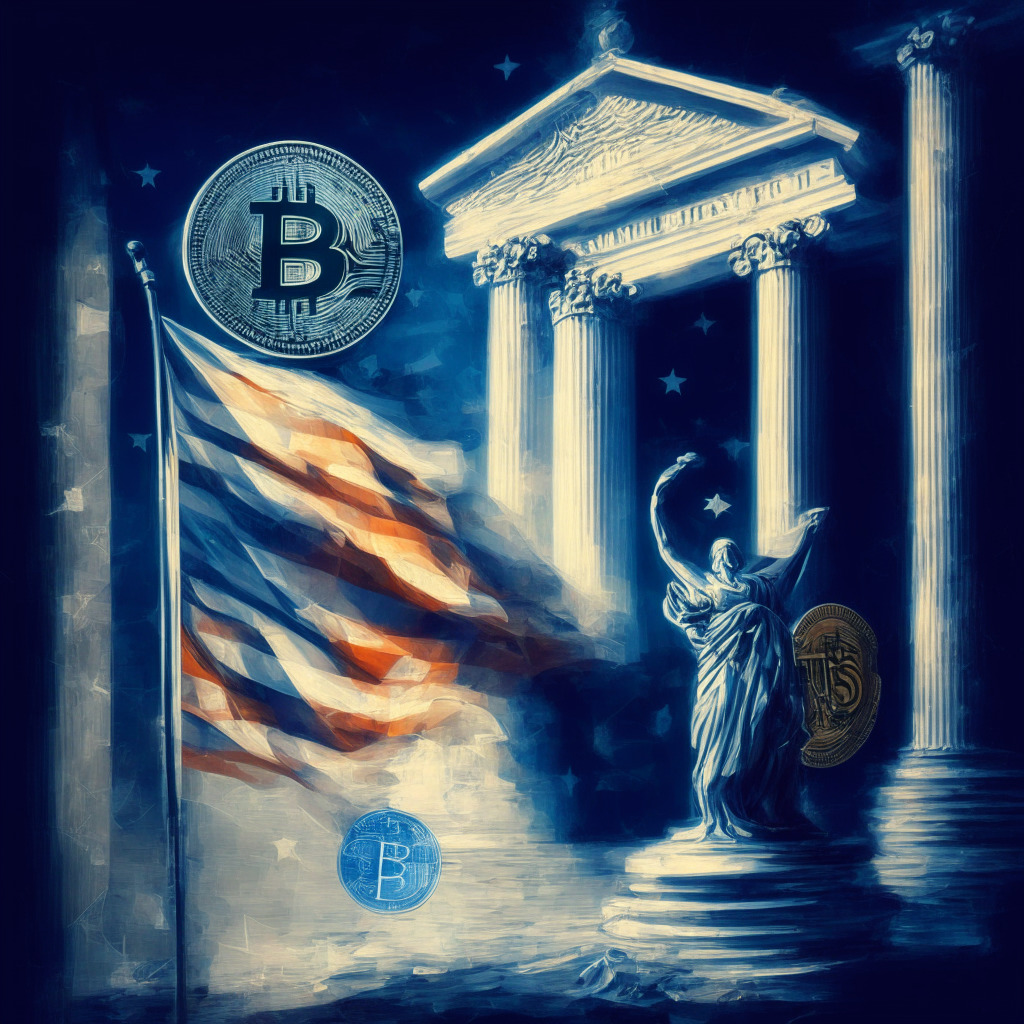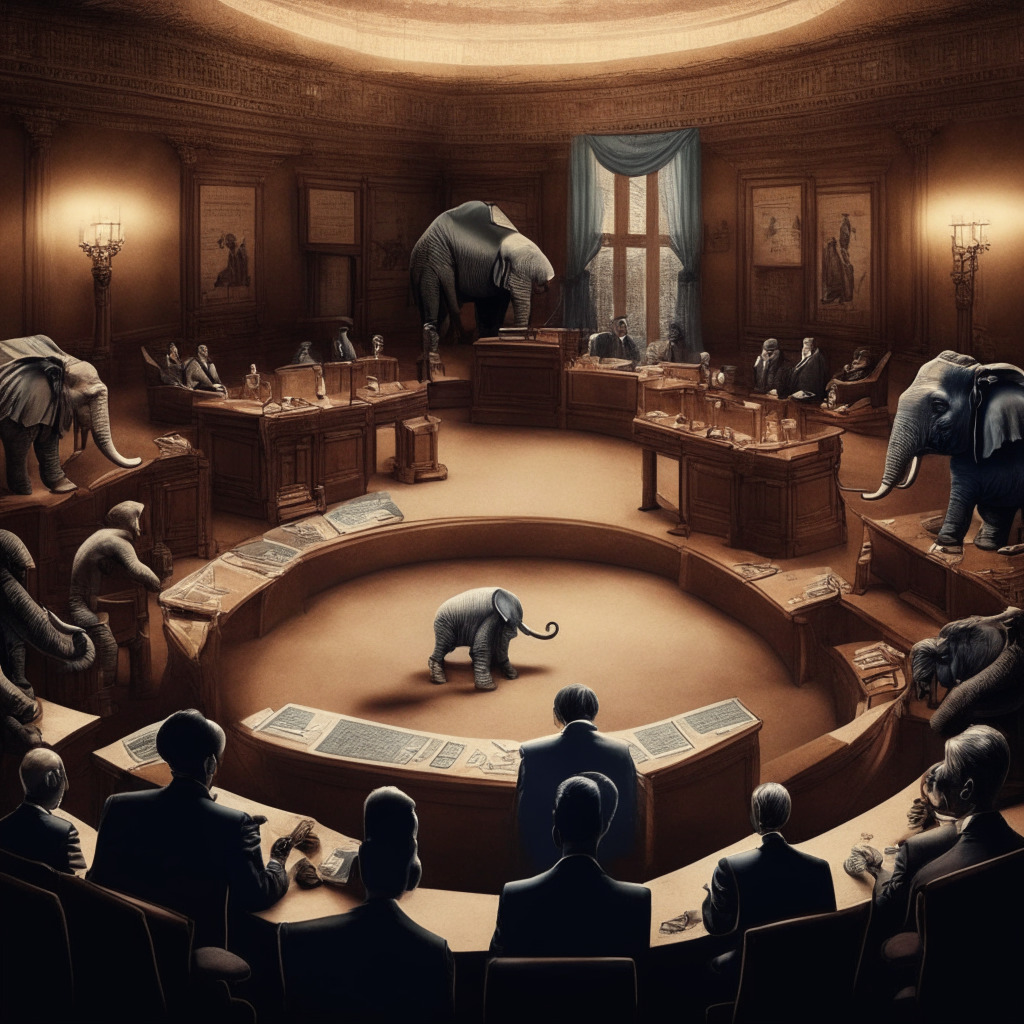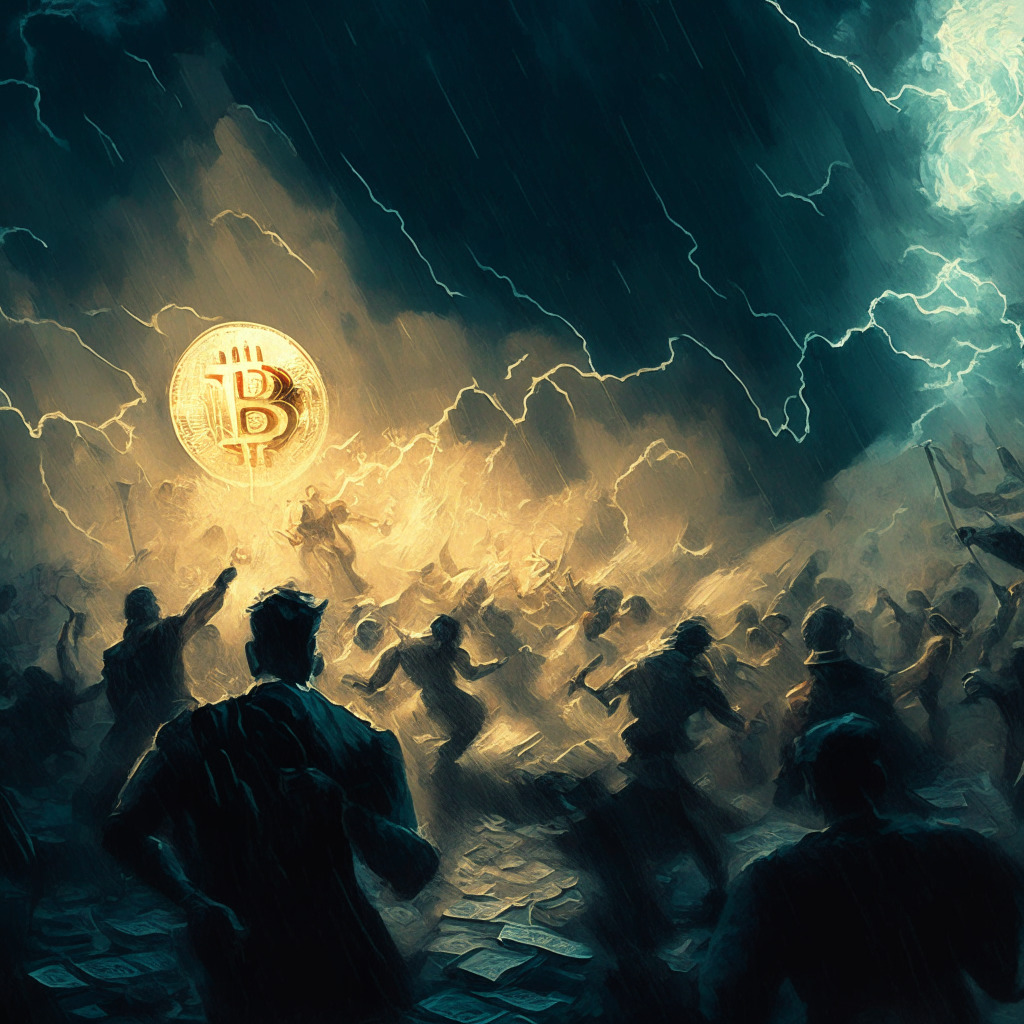The EU’s landmark crypto regulation, Markets in Crypto Assets (MiCA), set to become law in July, aims to govern crypto transactions and has increased VC investment in European crypto projects. While attracting attention and investment, potential downsides include resistance from industry players and risk of bubbles due to excessive investment.
Month: May 2023
Binance Exits Canada: Balancing Innovation and Regulation in Crypto Industry
Binance exits Canada due to new digital asset guidelines focusing on stablecoin and investor limits, while facing increased scrutiny from global regulators. This highlights the delicate balance between innovation and ensuring market security in the rapidly evolving world of cryptocurrencies.
yPredict Presale: AI-Powered Trading, Market Insights & Potential 70% Returns for Investors
yPredict’s presale is gaining interest among crypto enthusiasts due to its AI-powered trading and market intelligence approach. The project offers strong fundamentals and potential for lucrative returns, while minimizing rug pull risks with a solid tokenomics structure.
Assassin’s Creed Smart Collectibles & The Evolving NFT Market: Opportunities and Challenges
Assassin’s Creed is launching customizable “smart collectibles” featuring digital and physical components. These collectibles include a 3D-printed cube with a character figure and a Polygon-based NFT “Digital Soul” for proof of ownership. An embedded near-field communication (NFC) chip and companion app allow users to access achievements and earn rewards.
Bakkt Delists 25 Crypto Tokens: Strategic Move or Market Overreaction?
Bakkt delisted 25 of 36 crypto tokens on its acquired trading platform Apex Crypto as part of its regular review process, focusing on clients’ best interests and compliance with regulatory guidance. Many dropped tokens were connected to DeFi and NFT ecosystems, leading to skepticism and questions about Bakkt’s decision.
Quadriga CX Payouts: Restoring Faith or Exposing Crypto Exchange Risks & Uncertainties?
Former users of bankrupt Canadian crypto exchange Quadriga CX are set to receive 13% of their claims, with Quadriga’s estate owing $222.3 million across 17,648 claims. This highlights the potential risks and uncertainties in trading and storing crypto assets, raising questions about future regulations and crypto exchange security.
RAC’s CULT Pass: Merging Web3, AI & NFTs to Connect Artists and Audiences
RAC has collaborated with HIFI Labs to launch the CULT Pass, a dynamic NFT membership pass with visuals by artist Andres Reisinger and audio by RAC. This innovative project combines Web3 and AI to explore the possibilities of building a deeper connection between artists and audiences, providing ownership of the community and creating immersive membership experiences.
Google Bard vs. OpenAI ChatGPT: The Battle for AI Chatbot Dominance and Future Implications
Google’s AI chatbot, Bard, challenges OpenAI’s ChatGPT with upgrades introduced at the Google I/O conference. Transitioning to the PaLM 2 model and offering different versions for various applications, Bard provides improved performance in translation and coding support. Despite ChatGPT’s current adoption advantage, Bard’s free availability may attract users.
Ecoterra’s $ECOTERRA Token: A Game-Changer for Climate Action or Mere Band-Aid Solution?
Ecoterra’s innovative Recycle-to-Earn (R2E) system aims to promote responsible waste management and provide carbon offsetting options, raising over $3.5 million in presale for the native $ECOTERRA token. The platform rewards users with tokens for recycling and facilitates carbon footprint reduction through a marketplace that accepts $ECOTERRA and other cryptocurrencies.
Crypto Market Dips: Opportunity or Warning? Uncovering Top Picks Among AI, XLM, ATOM & More
Bitcoin has fallen below $27,000, causing concern for the crypto market’s immediate future. However, some investors are eyeing a potential dip to buy. Despite recent developments, AI, BGB, SPONGE, XLM, YPRED, ATOM, and DLANCE remain strong investment opportunities with solid fundamentals and technical analysis.
Ethereum Finality Hiccups: Analyzing Reactions, Implications, and Future Impacts
The Ethereum network recently faced two instances of technical issues causing confusion and debate among users and developers. These finality issues have raised concerns within the Ethereum community, emphasizing the importance of understanding blockchain technology and safety measures in the cryptocurrency world.
New Twitter CEO’s Ties to Dogecoin: Will She Embrace Crypto or Keep It in Limbo?
Linda Yaccarino, the newly announced CEO of Twitter, has connections with the Dogecoin and Shiba Inu communities. Although her stance on cryptocurrencies remains unclear, her past experiences and online presence suggest potential support for crypto integration on the platform.
US Senators vs El Salvador’s Bitcoin Experiment: Pros, Cons & Global Implications
U.S. Senators James Risch and Bob Menendez reintroduce the Accountability for Cryptocurrency in El Salvador Act, addressing potential risks surrounding El Salvador’s Bitcoin adoption as legal tender. The bill demands a report examining the nation’s cybersecurity, economic stability, and influence on its Bitcoin Law.
Bakkt Delists DeFi Tokens: Compliance Triumph or Barrier to Crypto Innovation?
Bakkt has decided to delist numerous digital assets, including prominent DeFi tokens, in response to regulatory guidance and industry developments. This move raises questions about the future for investors and projects while highlighting the significance of ongoing regulatory developments and the impact on the cryptocurrency landscape.
The Great Bitcoin Fee Crisis: Balancing Scalability, Accessibility, and Decentralization
The rising fee rates of Bitcoin have sparked intense discussion, as increased use-cases like NFT inscriptions and token speculation strain blockchain’s limited blockspace. The favored solution, Bitcoin’s Lightning Network, poses potential trade-offs in embracing custodial solutions for scalability and accessibility, with a focus on transparency and sustainable growth for the community.
El Salvador’s Bitcoin Boom: Surf Haven or Smoke and Mirrors? Pros, Cons, and Main Conflict
El Salvador’s adoption of Bitcoin and focus on surf tourism has attracted a record one million tourists, despite concerns about government transparency and crime-fighting strategies. As the country strives to become a tech hub, ensuring transparency and addressing criticisms is essential for continued success in cryptocurrency and tourism.
Ubisoft’s Assassin’s Creed NFTs: Innovation or Over-Valuation Risk? Pros and Cons
Ubisoft collaborates with Integral Reality Labs to create Assassin’s Creed Smart Collectibles – NFT access passes on Polygon network with redeemable 3D-printed keepsakes. This partnership highlights the potential of incorporating NFTs in gaming while addressing concerns of a speculative market bubble.
Binance Exits Canadian Market: Balancing Regulation and Crypto Industry Growth
Binance exits the Canadian market amidst regulatory pressures from the Canadian Securities Administrators (CSA), following new rules introduced on February 22. The regulations classify stablecoins as securities and impose stricter requirements on market participants, raising concerns about balancing investor protection and stifling industry growth.
Lido’s v2 Upgrade: A Step Towards Decentralization or Risky Gamble for Ethereum Staking?
Lido is currently voting on its second iteration, v2, on the Ethereum blockchain. The upgrade aims to introduce ETH staking withdrawals and a “Staking Router” for diverse node operator participation, potentially increasing decentralization and expanding Ethereum’s staking ecosystem.
Major Questions Doctrine: Friend or Foe in Crypto Regulation Battle?
The major questions doctrine, a legal principle in U.S. administrative law, could potentially diminish the SEC’s authority in regulating the cryptocurrency industry. Kraken’s Chief Legal Officer, Marco Santori, believes this concept is relevant as lawmakers deliberate on cryptocurrency regulations and should be considered by the SEC and CFTC.
US
The US is considering adopting Europe’s cryptocurrency regulation model, MiCA, for increased transparency, security, and consumer protection. However, concerns about privacy, personal freedom, and stifling innovation must be balanced in this evolving regulatory landscape.
LG’s Blockchain-Based Smart TV: Revolutionizing NFT Trading or Exposing Users to Risks?
LG Electronics filed a patent application for its blockchain-based Smart TV, enabling users to trade NFTs by connecting to a crypto wallet and NFT market server. The move follows the launch of LG’s NFT platform, the LG Art Lab Marketplace, highlighting its commitment to integrating Web3 solutions into its products while raising concerns about consumer safety and wallet integration restrictions.
Bipartisan Rift Emerges on Stablecoin Bill: Consumer Protection vs State Regulation
House Democrats are considering a separate stablecoin bill, highlighting a rift with the parallel Republican effort. Addressing stablecoins is a key priority for US lawmakers overseeing crypto operations. The Democratic bill focuses on consumer protection, granting the Federal Reserve veto power over issuer registration, while the Republican version empowers states to regulate issuers.
Coinbase Forms Advisory Council with Ex-Lawmakers: Navigating Crypto’s Regulatory Future
Coinbase forms Global Advisory Council, featuring former US lawmakers and industry leaders, aiming to better understand global cryptocurrency policies and navigate market intricacies. This proactive approach showcases Coinbase’s dedication to engaging with policymakers and experts, benefiting the entire crypto community and promoting growth within the blockchain sector.
Binance Exits Canada: Analyzing New Regulations and the Impact on Crypto Markets
Binance, the world’s largest crypto exchange, announced withdrawal from Canada due to new regulatory guidance on stablecoins and investor limits. This decision impacts the exchange’s operations and Canadian users, while Binance expresses interest in returning under more favorable regulations.
Binance Exits Canada: Navigating Crypto’s Complex Regulatory Landscape
Binance ceases operations in Canada amid challenging regulatory environment and stricter requirements for stablecoins and investor limits. CEO Changpeng Zhao expresses intention to collaborate with Canadian regulators for crypto regulatory framework development, while Coinbase maintains presence in the country.
Bitcoin Mining Lawsuit: Debating Energy Consumption Transparency and Industry Accountability
Whinstone US has sued Rhodium Enterprises, accusing them of owing $26 million in hosting fees and miscalculating energy consumption. This legal battle highlights the need for transparency and accuracy in energy consumption calculations within the cryptocurrency mining industry amidst growing environmental concerns.
Binance Exits Canadian Market: Analyzing Impacts and Regulatory Tensions
Binance is withdrawing from the Canadian market due to new stablecoin guidance and investor limits for crypto exchanges, joining other crypto businesses like OKX and dYdX. The exit raises concern over reduced competition and innovation in Canada, while highlighting the ongoing tension between regulators and cryptocurrency companies.
Ethereum’s Network Outages: How Growing Pains Affect Blockchain Security and Adoption
The Ethereum blockchain experienced two technical outages within 24 hours, causing concerns about network stability and security among users. These incidents raised valid questions regarding the platform’s ability to handle its growing adoption while maintaining consistent and secure performance.
Florida’s CBDC Ban: Protecting Privacy or Stifling Innovation? The Great Divide Explained
Florida Governor Ron DeSantis recently signed a bill barring the use of centralized digital dollars, intensifying the state’s opposition to central bank digital currencies (CBDCs). The move reflects the ongoing debate between supporters of cryptocurrencies and proponents of CBDCs, with concerns about government control, privacy, and financial inclusion shaping the future of digital assets.
Crypto Meets Sports: Floki Sponsors ITTF Championship, Potential Risks and Rewards
The ITTF partners with Floki, an Elon Musk-inspired cryptocurrency, to sponsor the World Table Tennis Championship Finals. This collaboration marks the first-ever union between table tennis and cryptocurrency, aiming to revolutionize the sport and spearhead its digital transformation while increasing visibility for Floki’s metaverse game, Valhalla.
Bitcoin’s Future at $25,000: Factors Influencing Market Sentiment and Key Price Levels
As Bitcoin nears the $25,000 support level, its future trajectory is uncertain due to factors like increased regulatory scrutiny, concerns around the Grayscale GBTC Trust Fund, and the strong US dollar. Technical indicators suggest a potential bullish rebound if Bitcoin stays above $26,000, but challenges remain.
